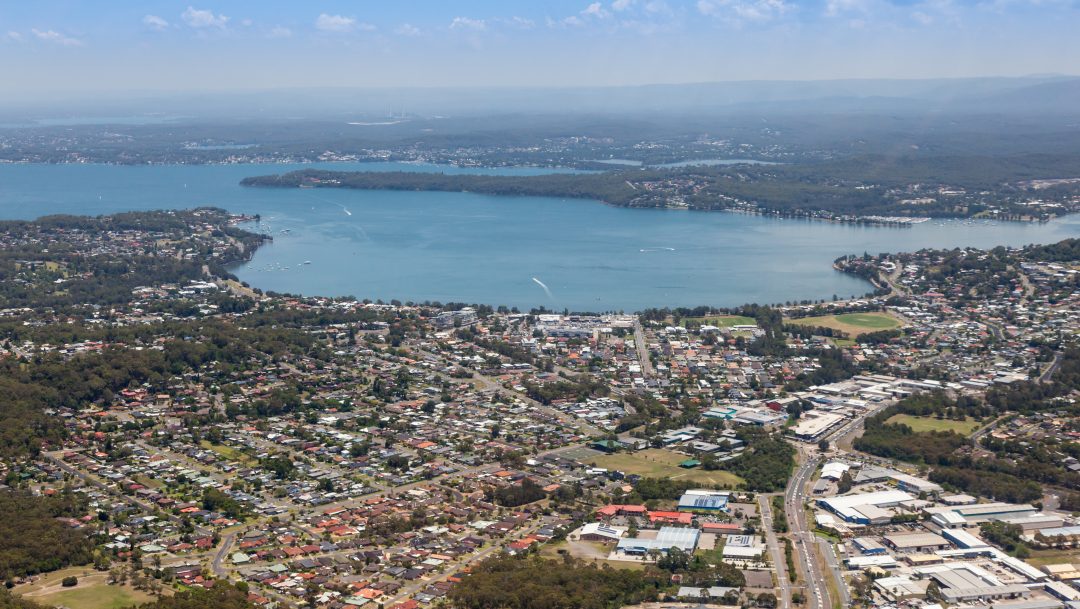Using agent-based modelling to analyse the potential for waste-to-energy from water
Hunter region, New South Wales, Australia

The challenge to people and the environment
The impacts of climate change and the long-term introduction of a price on carbon fuels mean cities need to find sustainable energy solutions – and fast.
As populations in city regions expand, the demand for sustainable energy from waste products will grow, in response to increased waste output, water shortages and demands for energy. This is leading many cities to explore a shift to a circular economy.
Identifying a solution: Waste to energy (WtE)
Water utilities such as Hunter Water are vulnerable to many risks posed by climate change and weather, but these companies are also well equipped to explore sustainable development strategies like converting waste to energy (WtE), which will benefit millions.
The pilot’s objectives: Explore waste-to-energy as a solution to a set of regional challenges
Australian State Owned Corporation Hunter Water partnered with Resilience Brokers to explore with industry experts, academia and the private sector a systems approach to WtE in the Hunter region.
The pilot’s objectives were to explore how systems thinking and modelling could help assess the potential for a WtE strategy that supports economic and environmental targets for the region.
Resilience Brokers, Hunter Water and key stakeholders from the region worked collaboratively to “explore how systems thinking can identify new opportunities and innovative solutions for a sustainable future in the Lower Hunter.”
The rewards: embracing a sustainable future for the region
Hunter Water provides drinking water, wastewater, recycled water and some stormwater services to a population approaching 600,000 people in homes and businesses across the Lower Hunter.
The project was designed to contribute to the New South Wales Government’s vision for the Lower Hunter of embracing a sustainable future for the region, balancing environmental, economic and social outcomes so that quality of life can be enhanced without burdening future generations.
The approach
The project consisted of a series of meetings and workshop with multiple stakeholders, facilitated by the Resilience Brokers’ team, to:
- identify opportunities for collaborative
- learning and integrated planning and design.
- review demonstration of systems modelling and digital tools
- explore WtE as a solution to a set of regional challenges
- identify investment opportunities and business models for WtE infrastructure and policy solutions
Tools and techniques used
We focussed on a systems modelling approach, using the resilience.io software framework to better understand regional resource flows and systems interlinkages.
Data modelling informed the design of interventions for the region, incorporating resources, technologies and networks as well as behavioural and economic aspects
Outputs
The data, as well as simulated scenarios generated in this prototype, can be extended in detail to lead to data-driven, systems-level investment plans to support the delivery of multiple regional objectives.
Target user communities
Main aspirations in the Upper Hunter region are air quality, the transition of jobs and industries due to the closing of coal and power infrastructure, and a shift to a circular economy.
The Lower Hunter region is prioritising regional economic development and transition with a metropolitan plan for Newcastle, including: regional land zoning and transport provision; considerations of the freight and port strategy for exports; imports and resource flows; and an overall circular economy strategy.
Pilot results and next steps
After six months of exploration, data gathering, specialist modelling work and scenario analysis, we produced a feasibility report. This report includes an example of a systems modelling approach to assess the potential for WtE strategies.
The systems approach presented in the report is as a starting point for the exploration of different visions and futures for waste-to-energy solutions, with local stakeholders at the centre of the decision-making process.

Contact us about this project
Any questions about this project? Get in touch with us at team@resiliencebrokers.org
More information on this work is included in the project report – PDF
The following research paper has been published concerning this project Planning of Food-Energy-Water-Waste (FEW2) nexus for sustainable development

